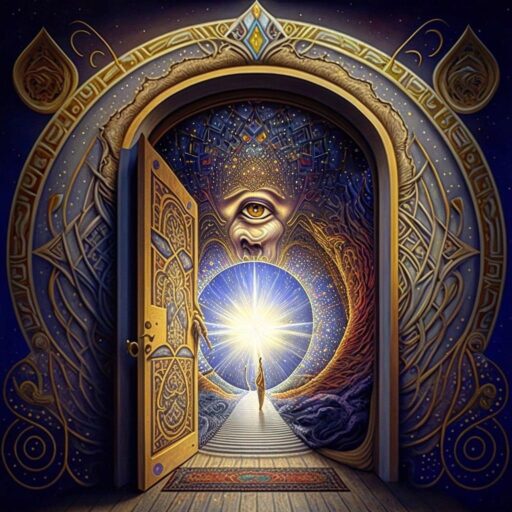
Exploration of Mystical States and Lasting Transformation
Crossing the Threshold: Mystical States and Human Consciousness
Throughout history, humans have sought experiences that transcend the ordinary — moments where time slows, the self dissolves, and the universe feels intimately alive. These mystical states are not just fleeting curiosities; they can be catalysts for profound, lasting transformation.
Psilocybin, the psychoactive compound in sacred mushrooms, has emerged as one of the most reliable pathways to these states. Across shamanic traditions, contemporary retreats, and clinical research, psilocybin has been shown to reliably induce experiences described as mystical, sacred, or transcendent.
Mystical states are often marked by:
-
A sense of unity or interconnectedness
-
Transcendence of time and space
-
Sacredness or contact with a higher intelligence
-
Ineffability, the awareness that words cannot fully capture the experience
-
Deep emotional release and joy
These experiences can reshape perception, leading to lasting changes in personality, values, and life purpose (Carhart-Harris et al., 2012).
The Neuroscience of Mystical Experiences
Modern neuroscience provides insight into why these experiences feel so transformative. Psilocybin temporarily reduces activity in the Default Mode Network (DMN), a brain network associated with ego identity and self-referential thought. With the DMN “quieted,” the mind can experience ego dissolution, a hallmark of mystical consciousness (Carhart-Harris & Friston, 2019).
At the same time, psilocybin increases global brain connectivity, allowing regions that usually do not communicate to exchange information. This neuroplasticity surge creates a fertile ground for psychological insight, emotional healing, and spiritual awakening.
Research shows that the depth of mystical experience correlates strongly with long-term benefits such as:
-
Reduced anxiety and depression
-
Increased sense of life meaning
-
Enhanced creativity and openness
-
Greater emotional resilience
Stages of Mystical Exploration
While each journey is unique, most experiences unfold in three overlapping stages:
1. Dissolution of the Self
The first stage often involves ego softening or dissolution. Individuals report feeling their personal boundaries blur, a loss of separation, and a profound connection to life itself. This is not dissolution in a frightening sense, but liberation from the constraints of habitual thinking.
2. Direct Encounter with the Sacred
During this stage, participants may encounter symbols, visions, or energies that feel sacred. Some describe meeting spiritual guides, while others perceive the universe as a conscious, loving presence. These encounters create revelatory insights, shifting perspectives on life, relationships, and purpose.
3. Integration and Transformation
The final stage begins as the mystical state fades. Integration practices — journaling, therapy, ceremony discussions, or guided reflection — are critical to translating ephemeral experiences into lasting personal transformation. This stage is where insight becomes behavior, awareness becomes action, and awakening becomes lived experience.
Scientific Validation Meets Spiritual Wisdom
What sets psilocybin apart is its dual validation:
-
Scientific: Studies at Johns Hopkins, Imperial College London, and others confirm measurable, repeatable changes in brain activity and lasting behavioral effects (Vollenweider & Kometer, 2010).
-
Spiritual: Indigenous traditions and modern retreat facilitators describe psilocybin as a teacher, a portal, a sacrament — a tool for remembering one’s essential self (Stamets, 2005).
Authors like Michael Pollan have bridged these worlds, showing that mystical states are both deeply transformative personally and scientifically observable and reproducible.
Meehl Foundation Blog
Deepen your understanding and experience with these internal resources:
-
Ancient History of Soul Retrieval: Shamanic Healing Traditions
-
Psilocybin Tantra for Sexual Healing: Evidence-Based Insights
External Research References
-
Carhart-Harris, R.L., et al. (2012). Neural correlates of the psychedelic state as determined by fMRI studies with psilocybin. PNAS
-
Vollenweider, F.X., & Kometer, M. (2010). The neurobiology of psychedelic drugs. Nature Reviews Neuroscience
-
Pollan, M. (2018). How to Change Your Mind. Penguin Random House
-
Stamets, P. (2005). Mycelium Running: How Mushrooms Can Help Save the World. Paul Stamets
-
Carhart-Harris, R.L., & Friston, K.J. (2019). REBUS and the anarchic brain: Toward a unified model of the brain action of psychedelics. Pharmacological Reviews
The power of mystical states lies not just in the experience itself, but in the lasting transformation it catalyzes. Retreats and guided practices ensure that these profound experiences are:
-
Anchored in safety — medical oversight, skilled facilitators, intentional preparation
-
Ritualized and sacred — honoring the mushroom as a teacher
-
Integrated into life — journaling, therapy, and daily practice for enduring change
When supported, mystical experiences catalyze lasting shifts in perspective, behavior, and connection. Many participants report renewed purpose, enhanced relationships, and a deep sense of belonging.

Your Invitation to Transformation
The mystical state is not a destination; it is a threshold. One step across it can shift everything — your perception of self, your connection to life, and your capacity for love and understanding.
🌿 Are you ready to explore mystical states and transform your life safely, guided, and legally?
👉 Yes — I’m Ready for Transformation Now

